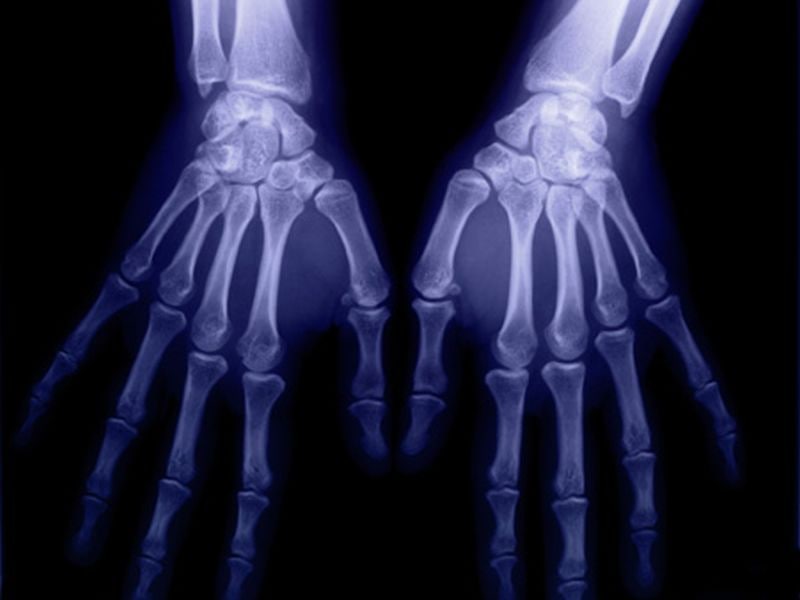Effect consistent across sensitivity analyses and comparable for men and women
WEDNESDAY, Sept. 23, 2020 (HealthDay News) — Genetically predicted body mass index (BMI) significantly increases the risk of rheumatoid arthritis (RA), according to a study published online Sept. 22 in Arthritis & Rheumatology.
Bowen Tang, from the Karolinska Institutet in Stockholm, and colleagues conducted a genetic correlation analysis and two-sample Mendelian randomization study using genome-wide genetic data from >850,000 individuals of European ancestry. Summary statistics were collected for BMI (806,810 individuals), waist-to-hip ratio (WHR; 697,734 individuals), WHR adjusted for BMI (WHRadjBMI; 694,649 individuals), and RA (14,361 cases and 43,923 controls).
The researchers found that although the overall genetic correlation between the three obesity-related traits and RA was negligible, there was significant local genetic correlation from several regions on chromosome 6 (positions 28 to 29M, 30 to 35M, and 50 to 52M), indicating shared genetic bias. Per standard deviation increment in genetically predicted BMI, there was an increased risk of RA (odds ratio, 1.22). Across sensitivity analyses, the effect was consistent, and it was comparable for men and women (odds ratios, 1.22 and 1.19, respectively). There was no evidence supporting a causal role of WHR or WHRadjBMI in RA.
“These results highlight an important role of obesity in the pathological development of rheumatoid arthritis, as well as provide a potential actionable preventive strategy,” a coauthor said in a statement.
Copyright © 2020 HealthDay. All rights reserved.








